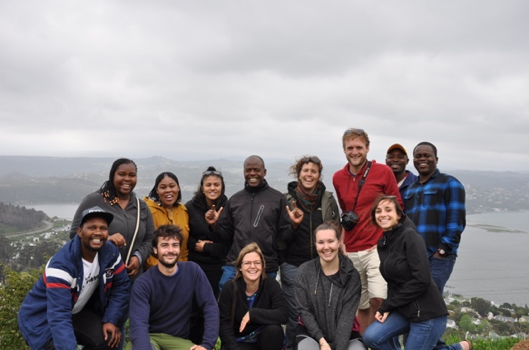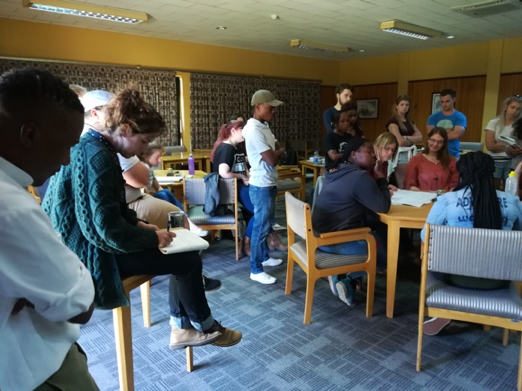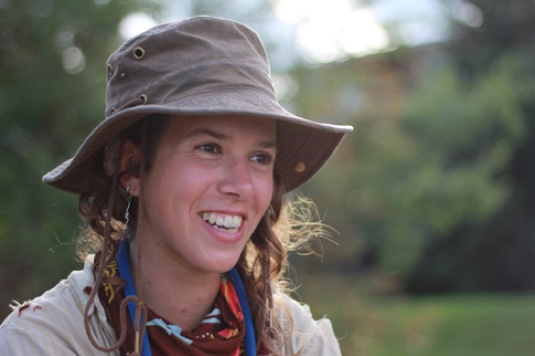by Dalal Hanna
As PhD students we spend a lot of time at our home institution. We get to know the professors and students working in our department, the equipment available to us, the various seminar series hosted internally… In my department and regular PhD routine there is usually so much going on that it can feel like the world. But the world is much most vast. And just as species benefit from cross-pollination, my recent experience showed me that PhD students can truly benefit from spending time doing research in a place they don’t call home.
A year ago, I heard wind of the international exchange programs the Quebec Centre for Biodiversity Science supports. This got me thinking about all the different scientists working abroad that I would love to meet. I read their papers, follow their work, build from the methods they’ve come up with, but never get to interact with them. If I’m lucky, I’ll cross paths with them at an international conference, but the exchange is always far too short. And so, when the occasion to spend some time in a lab abroad working on a collaboration came up, I turned to my list of favourite authors and decided to reach out to one about working together on a project I knew their expertise would be of great value to. The researcher was enthusiastic about my proposition for a visit. And so, a few months later I was on a +24hrs plane journey to the tip of South Africa. There, I would meet with this scientist, as well as some of his key collaborators, and spend a month diving into their world of research and working on a collaboration together.

Graduate students, including Dalal Hanna, attending the Spring School on Social Ecological Systems during a field trip. The group is standing in front of a bay that burnt during severe fires. Scenario planning workshops were held in this region prior to this fire. One of the ideas that emerged during these workshops- a water evacuation- was used during the real fire and thought to have save numerous lives.
I knew that visiting my South African colleague would be an experience of a lifetime, but I could never have guessed how much I would learn in my short time spent working there. My research stint started off the by attending a three-day conference my collaborator organized which was all about protected area management. Given that my PhD research is all about freshwater protection it was fantastic to learn about how South African National Parks operates and reflect upon what Canada has to learn from this. Next, I attended a week-long graduate course on social ecological systems thinking that my local collaborator was co-organizing, and had invited me to attend. There, I learnt about innovative methods to integrate the much needed social perspective into ecological research (find out more about that here). I spent the following weeks between the SANParks Scientific Services office, and Nelson Mandela Metropolitian University Sustainability Research Unit graduate student offices, where I dove deeply into one of my PhD chapters. In just a short period of time the part of my PhD project I was there to work on went from being embryonic, to ready to put into action. This project looks at all the different ecosystems services people receive from freshwater protection, and if getting them involved in protected area management can increase the flow of services from ecosystems to local community members. During my weeks in these offices I interacted with several colleagues that have years of experience in participatory planning, and built from their experiences to design a protocol for my own research.

Attending a workshop on Table Hosting- a useful technique to engage with diverse actors and gather knowledge about environmental management. Photo by Bianca Currie.
Now, returned to my home department, I bring with me new research skills, new friendships and long-term collaborators, and a breath of fresh air from seeing how research facilities on the other side of the world operate. A huge thank you to the QCBS for making this possible. I hope that this post can serve as a word of encouragement to get other graduate students thinking about spending some time working on their research with collaborators away from home. There is a lot to learn away from home, and it’s great to be able to bring all that home!

Dalal Hanna is a PhD candidate at McGill University in the Department of Natural Resource Sciences. She does research on freshwater ecosystems, her favourite natural playground. You can keep up to date on her work via Twitter (@Dalal_EL_Hanna).

0 Comments